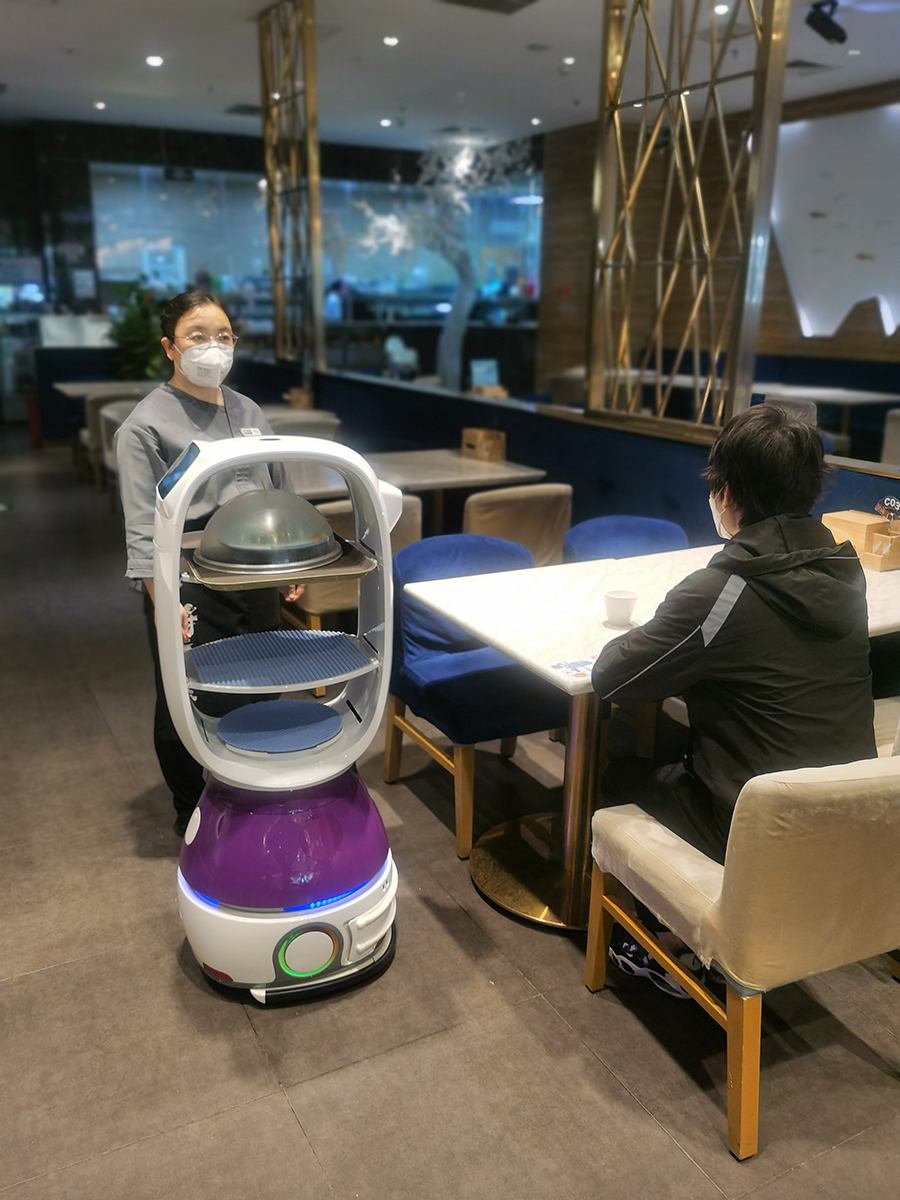Restaurants serve up range of new ideas


Community approach
Meanwhile, the Meizhou Dongpo restaurant chain is targeting communities.
Wang Gang, founder of the Meizhou Dongpo Catering Group, said that from Jan 21 to Jan 30, the group experienced 11,144 cancellations in the 100-plus restaurants it owns nationwide, incurring losses of about 17 million yuan.
The company also has a monthly wage bill of about 50 million yuan and pays rent of 11 million yuan. Wang said that unless the situation eases, it can only survive for another three to six months.
On the second day of Spring Festival, its outlet in Yizhuang, a town in Beijing's Daxing district, began outdoor sales of raw ingredients prepared for Lunar New Year dinners.
Chen Aihong, general manager of the branch, said the vegetable displays have been improved and more produce introduced.
"We also formed a delivery team to take our produce to clients. The team consists of staff members who are not working, as we have few walk-in diners," Chen said.
The team quickly contacted all communities in Yizhuang to set up WeChat groups for residents' orders and supplied them with raw ingredients and semi-cooked products.
"Our staff are taking some additional produce to communities so that when people come to collect their orders, they have more choice," Chen said.
The team delivers boxed meals to employees of the many large companies based in Yizhuang. Orders are also sent to a shuttle bus station so that staff members can collect produce or semi-cooked dishes to take home when they finish work.
Chen has organized livestreaming sessions. She positions her chef in front of a camera, who tells viewers how to cook the restaurant's signature dishes. "It's not only about selling the produce, but also making a connection with our clients," Chen said.
An empty space stands next to the restaurant, where she plans to grow fruit and vegetables, posting updates on livestreaming platforms.
Chen has also sent 30 of her employees to work as "shared staff" for an ice cream factory near the restaurant.
"We don't have sufficient work for them, and the factory doesn't have enough employees returning to work from elsewhere, so it's a win-win solution for both us," Chen said.
Stuffed bun and boiled duck blood are popular semi-cooked dishes, with roast duck favored for takeout orders.
"People have become more interested in cooking for themselves during the pandemic, but occasionally they miss our roast duck," Chen said.
Liu Lingzi, 29, a brand manager in Beijing who used to be too busy to cook, said she has been working from home for two months and this has given her more time in the kitchen.
Last week, she made paella, beef steak and spaghetti with meat paste for her family. She had already bought the half-cooked ingredients, so it only took her 30 minutes to prepare the meal.
"All the ingredients, including seasoning, are included in the package, together with simple step-by-step instructions," Liu said. "They tasted exactly the same as they did in the restaurant (before the pandemic), even though I had never made paella or spaghetti."
Liu said she became tired of ordering takeouts, as she could not see the ingredients. "If I buy ingredients in the supermarket, I usually get more than I need, but with the half-cooked dishes, the amount is exactly right, so I don't waste anything," she said.
























